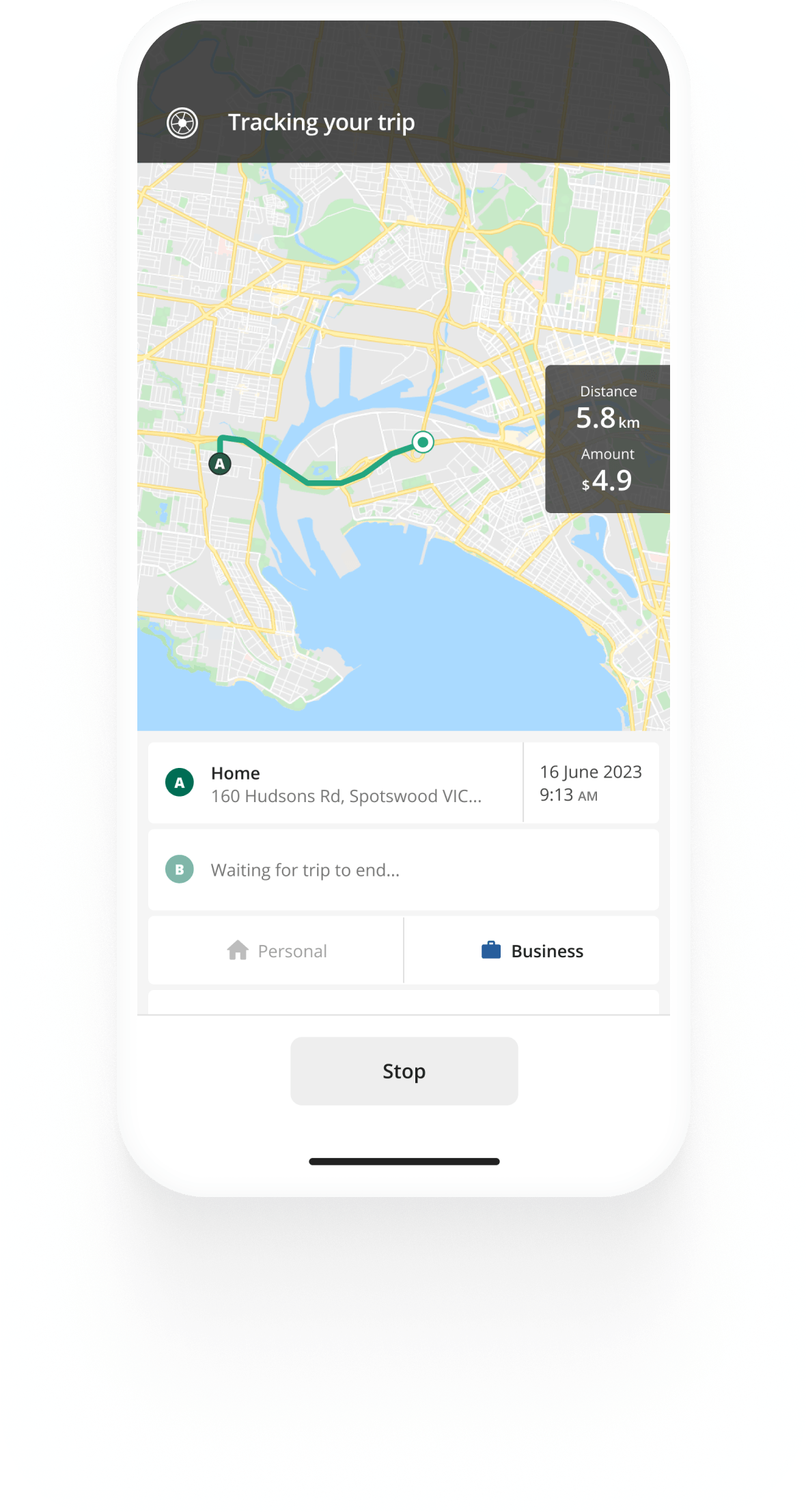Track mileage automatically
Get startedTruck Log Book
A truck log book, also known as a work diary, is a document truck drivers must keep to show their compliance with the work and rest hours regulations in Australia according to the Heavy Vehicle National Law.
The work diary is in the form of empty sheets that drivers must fill out each day with the start of the working day, driving, rest hours and more. Of course, there are some exceptions to the drivers that must keep a truck log book.
When to keep a truck log book
The Heavy Vehicle National Law (HVNL) sets out rules on who must keep a truck log book and in which instances.
These laws relating to work diaries currently apply in NSW, QLD, SA, TAS, ACT and VIC.
You must keep a truck work diary if you drive a fatigue-regulated heavy vehicle (vehicles with a gross mass over 12 tonnes and busses over 4.5 tonnes for more than 12 people) and:
- Operate more than 100 kilometres from your home base under standard hours.
- Work under Basic Fatigue Management (BFM), or
- Work under Advanced Fatigue Management (AFM)
Note that even if most of the time you operate under standard hours within a local, 100 km radius from your home base, but have days where you drive farther, you will need to keep a log book for these days.


Kilometre tracking made easy
Trusted by millions of drivers
Automate your logbook Automate your logbook

Automatic mileage tracking and ATO-compliant reporting.
Get started for free Get started for freeHow to fill out a truck driver log book in Australia
You must always fill out specific details of your work day in order to maintain a compliant work diary. The first part of your truck log book contains data for driver identification, specifically your name, driver's license number and the vehicle number plate. You must also fill out the date, week and time zone of your home base and the hours under which you are operating, e.g. standard, AFM or BFM.
Throughout your work day, you must fill out your work and rest hours at every switch between rest and work, an odometer reading of your vehicle and the location of the change. Truck log book regulations stipulate you should be as specific as possible when you write down the location.
Finally, you calculate your total driving and rest hours for the date and sign the work diary.
Keeping your truck log book
You must have your truck log book with you at all times, even if on some days you only operate in your local area. If you finish the sheets on your work diary and are filling out a new one, you will still need to keep the completed truck log book with you for 28 days.
Every page of your work diary has an Original, and two Copy pages - a yellow and a pink one.
You must keep the Original page in your truck log book, and provide the yellow copy of your daily work diary to your record keeper. The pink Copy page can be used if for example, you complete work for two separate employers in one day, or if an authorised officer requests it.
If you need to keep track of your work-related kilometres, check our work-related kilometres reimbursement and deductions guide to learn more.
FAQ

Tired of logging mileage by hand?
Effortless. ATO-compliant. Liberating.
Related posts
ATO Mileage Guide
25 June 2024 - 5 min read
Learn about the rules of reimbursing employees for their car expenses or deducting expenses as an employee or self-employed individual.
Hiring Employees as a Sole Trader
15 April 2025 - 5 min read
How to hire employees as a sole trader in Australia and the main obligations and considerations in doing so.
How to Write Off a Car for Business in Australia
15 April 2025 - 2 min read
Don't miss out on writing off a car for business - it may be the largest deduction you can claim as a business owner. See the 2024/25 ATO rules.

.svg)
.svg)